PUBLIC INFLUENCE
A Guide to Op-Ed Writing and Social Media Engagement
Mira Sucharov
UNIVERSITY OF TORONTO PRESS
Toronto Buffalo London
University of Toronto Press 2019
utorontopress.com
Printed in Canada
All rights reserved. The use of any part of this publication reproduced, transmitted in any form or by any means, electronic, mechanical, photocopying, recording, or otherwise, or stored in a retrieval system, without prior written consent of the publisher-or in the case of photocopying, a licence from Access Copyright (the Canadian Copyright Licensing Agency) 320-56 Wellesley Street West, Toronto, Ontario, M5S 2S3-is an infringement of the copyright law.
 This book is printed on paper containing 100% post-consumer fibre.
This book is printed on paper containing 100% post-consumer fibre.
________________________________________________________________
Library and Archives Canada Cataloguing in Publication
Sucharov, Mira, author
Public influence : a guide to op-ed writing and social media engagement / Mira Sucharov.
Includes bibliographical references and index.
ISBN 978-1-4875-8746-8 (hardcover). ISBN 978-1-4875-8745-1 (softcover)
1. Editorials Authorship. 2. Social media. I. Title.
PN4784.E28S83 2019808.06607C2018-905770-X
________________________________________________________________
We welcome comments and suggestions regarding any aspect of our publicationsplease feel free to contact us at .
North America |
UK, Ireland, and Continental Europe |
| 5201 Dufferin Street | NBN International |
| North York, Ontario, Canada, M3H 5T8 | Estover Road, Plymouth, PL6 7PY, UK |
ORDERS PHONE: 44 (0) 1752 202301 |
| 2250 Military Road | ORDERS FAX: 44 (0) 1752 202333 |
| Tonawanda, New York, USA, 14150 | ORDERS EMAIL: |
ORDERS PHONE: 1-800-565-9523
ORDERS FAX: 1-800-221-9985
ORDERS EMAIL: utpbooks@utpress.utoronto.ca
University of Toronto Press acknowledges the financial assistance to its publishing program of the Canada Council for the Arts and the Ontario Arts Council, an agency of the Government of Ontario.

Acknowledgements
I owe a debt of gratitude to many friends and colleagues. Thanks goes first to Mat Buntin, my outstanding editor at University of Toronto Press, whose superb vision and sage guidance helped this book grow from inception to print. Thanks goes too to Natalie Fingerhut at UTP who helped nurture the seed of the idea. Copyeditor Kerry Fast, production editor Christine Robertson, proofreader Gina Nicholls, indexer Siusan Moffat, and Anna Maria Del Col and her colleagues in sales and marketing made the entire process smooth and enjoyable.
Brent Sasley, Thomas Juneau, Marc Caplan, and Nathaniel Berman each read parts of the manuscript and provided thoughtful feedback. Three anonymous reviewers also helped make the manuscript stronger.
Joshua Busby, Chaya Halberstam, Patrick Thaddeus Jackson, Shaul Magid, Atalia Omer, and Tamara Cofman Wittes each offered helpful articles or conversations at key points in the project. Many friends and followers on social media answered my various crowd-sourcing calls for observations about your experiences and for that I am grateful.
Some of the issues covered here were workshopped at the Centre for International Policy Studies at the University of Ottawa, with Brent Sasley in the pages of PS: Political Science and Politics and on the London School of Economics and Political Science Impact blog, and with Lena Saleh in Israel Studies Review.
Thanks to my department chair, Jonathan Malloy, who supported the creation of my Political Opinion Writing course at Carleton and to the students in all my courses who have to (or get to, depending on ones perspective) learn how to write op-eds and who continue to teach me a lot.
The many editors Ive worked with in the opinion pages of various news outlets over the years have helped sharpen my op-ed voice. Thanks goes to Peter Beinart, Avital Chizhik-Goldschmidt, Ali Gharib, Rob Gilroy, Lisa Goldman, Yoni Goldstein, Charlotte Hall, Jillian Jones, Basya Laye, Sara Miller, Andrew Phillips, Cynthia Ramsay, Michael Regenstreif, Sigal Samuel, Doug Saunders, Dahlia Scheindlin, Esther Solomon, Rhonda Spivak, Simon Spungin, Leonard Stern, Batya Ungar-Sargon and Rutie Zuta.
Peter Eisenstadt, Bernie Farber, Brent Sasley, and Joshua Schreier, co-authors of several op-eds I have written, have each helped me think through pressing topics in a new way.
Thanks to Dara Pavlich and Ryan Nadel, my younger and hipper cousins, who in December 2006 first introduced me to Facebook, and to my early mentor, Rex Brynen, who modelled fine scholar-social media use from the beginning of the platform.
Most of all, thank you to my family: to my parents and stepparents for their ongoing enthusiasm and curiosity about my creative projects; to my husband for his constant, loving support in every way; and to our two amazing kids who infuse my days with fun and meaning and give me added reason to want to write towards a better world.
M.S.
Ottawa, October 2018
Chapter one
Introduction
In 1969, an editor at the New York Times invited a scholar to adapt the ideas from his recent book into an op-ed for the newspaper. The scholar agreed and submitted a draft. But when the editor presented some suggested edits on the op-ed, the scholar demurred. I am afraid that I will have to abandon the project, reluctantly, said the scholar. For some reason, I find it enormously more difficult to write 700 words than 7,000a typical professorial defect, I suppose. The scholar was Noam Chomsky. He would go on, of course, to become one of the most prominent public intellectuals of the twentieth century and beyond.
That was half a century ago, and while much has changed in the realm of public commentary owing to the digital revolution, one thing has not. There are many, many experts out thereacademics, professionals, and graduate students training to become specialists in their fieldwho have much to contribute but who struggle with the idea of pivoting from strictly professional writing to the kind of writing and informal engagement that can reach a broader audience. And because we are now living five decades after Chomsky walked away from that particular op-ed opportunity, we also inhabit a time where the conversations stemming from public-commentary pieces, including op-eds, columns, blogs, short analytical essays, etc., regularly spill over into social media spaces. In turn, many of these social media debates shape much of what goes into informed and responsive public commentary. This book traverses the landscape of op-ed and related publishing, into the dynamics of social media conversations and back, to help you develop and sharpen your public engagement skills.
Why Should Experts Contribute?
Professors and related experts are plenty busy. So why should we spend time and effort contributing to op-ed pages and to related public-commentary outlets, and why should we engage our peers and the broader public on social media? Heres why. Experts have access to information and a depth of understanding useful for addressing an array of problems of interest to the public. When shared thoughtfully and judiciously, even personal experience can help illuminate thorny and polarizing issues. (I discuss the role of personal experience as a source of insight in .) Using social media to weed out false and deceptive articles claiming to be news; arguing issues on their merits; bringing evidence to bear on arguments; clarifying hot-button terms and labels that are sometimes understood differently across audiences; and harnessing knowledge to make research-based arguments all mitigate against the decline of intelligent discourse and the erosion of an informed citizenry. All this, in turn, strengthens civil society, a key component of a healthy democracy. A free and open media, as is well-known, is one of the linchpins of democracy. Infusing the news mediaand social media, for that matterwith expert voices that provide analysis, commentary, and public-policy prescriptions on a range of issues and from a range of perspectives enhances the role that the fourth estate can play.

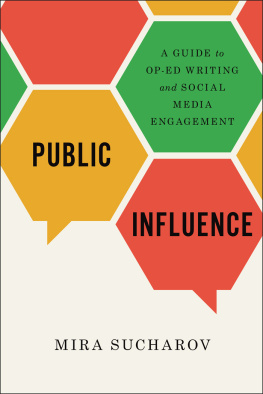

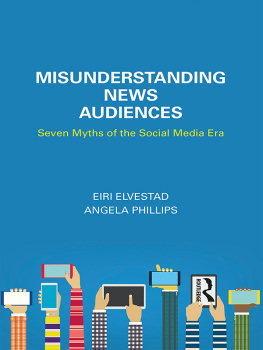
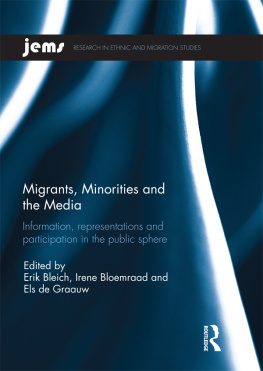
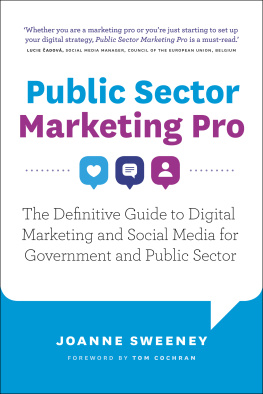
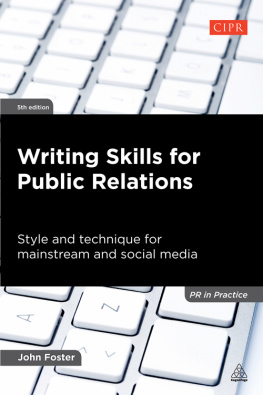
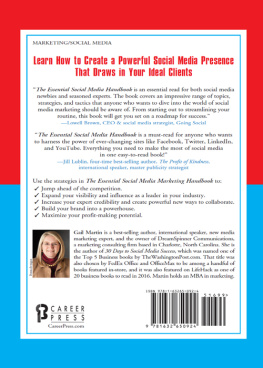
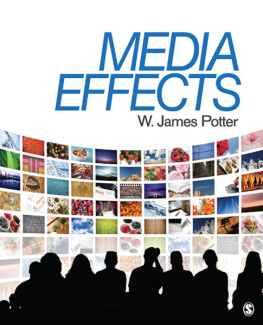
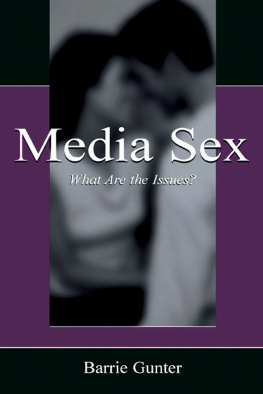
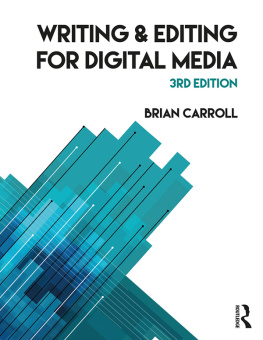

 This book is printed on paper containing 100% post-consumer fibre.
This book is printed on paper containing 100% post-consumer fibre.